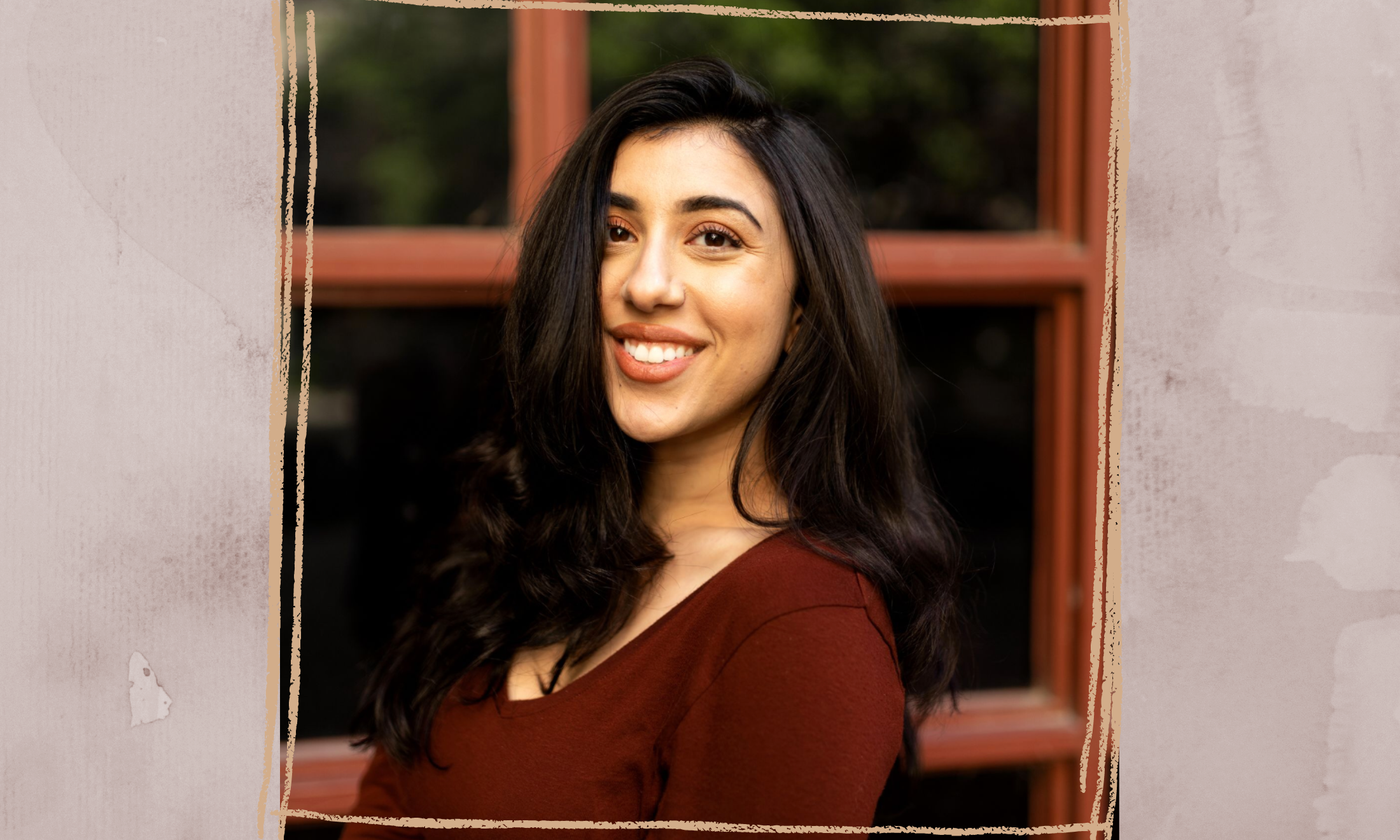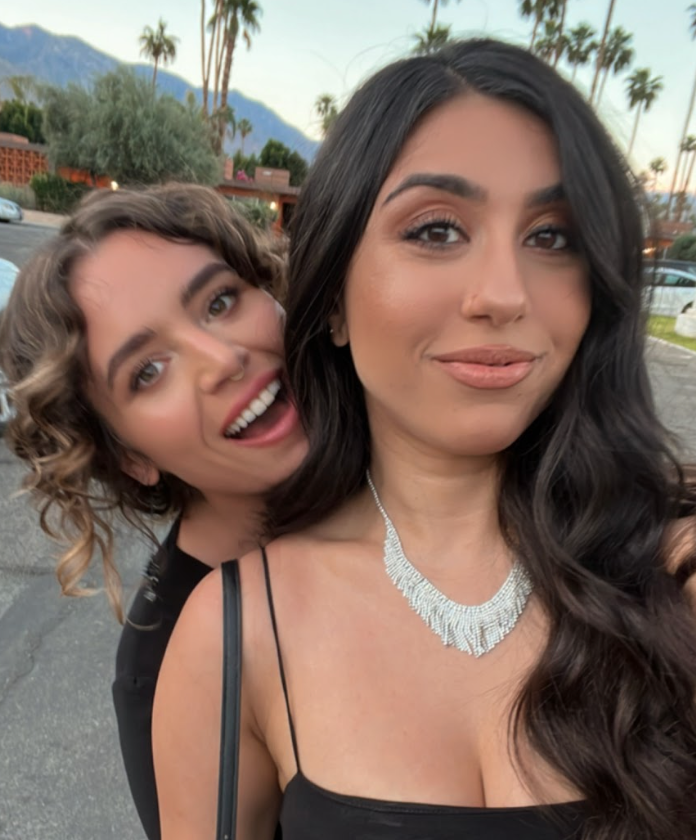
Sania Khan
Remembering Sania Khan: the Pakistani-American photographer who spoke out against her abusive marriage
The 29-year-old was murdered by her ex-husband after she bravely shed light on the reality of divorce and escaping domestic violence as a South Asian woman.
Alia Waheed
16 Aug 2022
Content warning: This article contains mention of domestic violence, murder and suicide.
Remembering Sania Khan: the Pakistani-American photographer who was killed for facing up to her abuser Scrolling through instantly forgettable dance videos and Love Island clips on TikTok, occasionally you come across snapshots of people’s lives that stay with you. One such video was of a young woman, her dark brown eyes, swollen with tears, staring at the camera. The caption said:
“Going through a divorce as a South Asian woman feels like you failed at life sometimes. The way the community labels you and the pressure to stay because of what people will say is isolating… it makes it harder for women to leave marriages that they shouldn’t have been in to begin with.”
It was one of a series of heartfelt TikTok videos posted by Sania Khan, a 29-year-old photographer from Chicago who documented her painful journey as a Pakistani woman going through divorce under the name @geminigirl_099.
Sania used social media to promote her work as a photographer, and began posting about her divorce in May. Her account won her a loyal following for bravely shedding light on the stigma of being a woman who dared to end a marriage in the conservative communities of Pakistani society. Sania’s videos resonated with women who saw their own stories in hers.
One TikTok user, @Neellya_ wrote: “Keep being you. I was disowned by my family and we have come back a full circle. Don’t compromise your values for someone else’s.”
“I don’t show my face because I come from a very conservative family, I wish it wasn’t like this but I’m proud of you for refusing to stay silent,” wrote @courageouscook_speaks.
Sania hoped sharing her experience would start a movement for change within the South Asian community, and even save other women from the difficulties she had endured.
In one of her last videos, she talked about starting a new life and even getting a tattoo to celebrate a birthday she almost didn’t reach after her ex-husband Raheel Ahmad tried to kill her in December last year. Yet, this was the last birthday she would see. Sania was murdered a month later.
Raheel, 36, had driven over 700 miles from Georgia to Sania’s apartment in Chicago, where he shot her dead before turning the gun on himself on 18 July.
Sania’s murder shone a spotlight on how patriarchal attitudes and stigma around divorce forces many women to stay in abusive marriages, with often devastating consequences.
While domestic violence is an issue that affects people of all ethnicities, cultures and faiths in every part of the world, in the US, the intersectionality of patriarchal culture and lax gun laws means women are more likely to be killed in a domestic violence situation. According to the National Coalition Against Domestic Violence, the presence of a gun increases the risk of homicide by 500%.
“When it comes to domestic violence in the Pakistani community, the approach to is to dismiss, minimise or, worse, completely deny that the issue exists,” says Robina Niaz, founder of Turning Point, one of the oldest domestic violence organisations for Muslim women in the US. In 2021 alone, Turning Point supported more than 300 women and girls who had faced domestic abuse.
“Since cultural [and] patriarchal interpretation of women’s right to divorce takes precedence over facts, it’s harder for women to speak out because often their own families do not believe or support them,” she says.
Although Sania’s marriage wasn’t arranged in the traditional sense, it was strongly encouraged by both families. Sania and Raheel married last June, but it wasn’t long before red flags began to show. Raheel was jealous and controlling, making Sania wear conservative outfits and deciding who she was friends with.
“It’s harder for women to speak out because often their own families do not believe or support them”
Robina Niaz
“He was lying about how old he was. He made a fake Tinder profile with all her photographs too. I am not sure what the motivation was for that – maybe to see how many men would want her. Then she found out he was cheating on her,” Gabriella Antonia Bordó, one of Sania’s best friends, tells gal-dem.
Despite the abuse, Sania faced pressure from her family and in-laws to stay in the marriage. “Things came to a head in December when he tried to commit suicide by jumping out of their apartment window and pulling her with him. All this collectively led her to decide to divorce,” Gabriella says.
However, Sania was then ostracised by her community and family, which her friends say left her distraught.
‘Beautiful inside and out’
Sania grew up in Chattanooga, Tennessee, home to a small, tight-knit, Pakistani community who clung onto conservative values. It was the kind of community in which a divorced daughter was looked upon as a scandal.
In one of her TikTok videos, she described how family members had told her “if I left my husband I would be letting Shaytan (the devil) win, that I dress like a prostitute and if I move back to my hometown they’ll kill themselves.”
“She definitely struggled with feeling like she would not be accepted by her community and family if she got divorced,” says Jessica Eubanks, a close friend of Sania’s. “She loved her mum very much, but they had a kind of back and forth relationship. Her mum was very traditional and strict and wanted Sania to stay married because of cultural obligations.”
“Upholding family honour is a very influential piece of the puzzle for survivors,” Robina adds. “When a woman is told that she will be disowned or will dishonour the family if she speaks out, the fear makes them feel ashamed for putting their safety first and has long lasting, sometimes tragic consequences.”
On the day she died, her best friend Gabriella had landed in Chicago to help Sania finish packing to move back to Chattanooga where the pair were planning to share an apartment.
“A friend of Sania’s who I didn’t know contacted me saying she got a disturbing message from a stranger on Instagram saying they were so sorry to hear about Sania,” Gabriella says.

“I was freaking out, I’m in the middle of a train in a city I don’t know, talking to someone I don’t know about how the friend I was going to pick up has been killed.”
A few minutes later, Sania’s father rang Gabriella and confirmed the news. “I just lost it. I was on the sidewalk crying hysterically. I had passers by and cars stopping and asking me if I’m okay. When I got to her house, I fell to the ground crying. It still feels like it was not real, like this can’t be us. She was going to be my roommate.”
Sania’s friends describe her as “a force of nature”. She majored in women’s studies and was always concerned about women’s rights. She worked as a flight attendant before pursuing photography and dreamt of becoming a travel photographer.
“Sania was like a thunderstorm,” says Gabriella. “She was so magnetic and energetic, funny and outspoken. She was so kind and thoughtful. I’ve never met someone so open and uplifting of others. She was beautiful inside and out. She was more than my best friend, she was my future.”
In the aftermath of Sania’s death, many women took to social media to talk about their own experiences of domestic violence and how the pressures of maintaining family honour and the stigma around divorce in Pakistani society enabled the abuse. Booker Prize winning author Elif Shafak expressed their anger on Twitter: “How many women have been murdered at the hands of men? Our societies need to change! Stop the stigma around divorce.”
Four South Asian women’s charities (Sakhi for South Asian Women, Manavi, Jahajee Sisters and South Queens Women’s March) have since released a joint statement calling for more action to safeguard women who are trying to leave abusive marriages. “We know that domestic and sexual violence occurs in South Asian communities at higher rates, and that such cases go underreported because of the failure of traditional social service systems to reach our community and the intense family and social pressure to preserve marriages. These realities play out every day in conversations between our organisations and the survivors we work with,” they said.
“We must create the circumstances in which a survivor can readily reach out for support – and we must aspire to a future in which the underlying roots of this harm are altogether alleviated.”
Sania sparked the movement for change, but sadly never got to live to see it.
The UK national domestic abuse helpline on 0808 2000 247 or visit Women’s Aid. In the US, the domestic violence hotline is 1-800-799-SAFE (7233). Other international helplines can be found via befrienders.org.
Our groundbreaking journalism relies on the crucial support of a community of gal-dem members. We would not be able to continue to hold truth to power in this industry without them, and you can support us from £5 per month – less than a weekly coffee.
Our members get exclusive access to events, discounts from independent brands, newsletters from our editors, quarterly gifts, print magazines, and so much more!

Britain’s policing was built on racism. Abolition is unavoidable

How Pakistan’s Khwaja Sira and transgender communities are fearing and fighting for their futures

Their anti-rape performance went viral globally. Now what?







